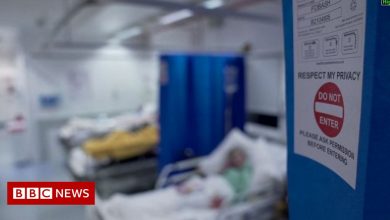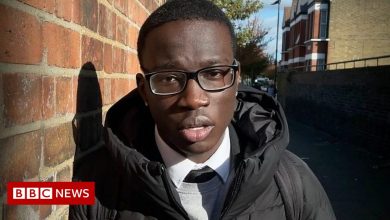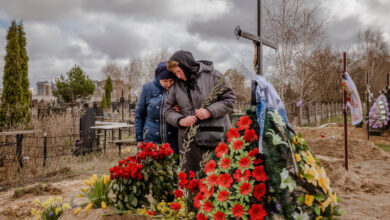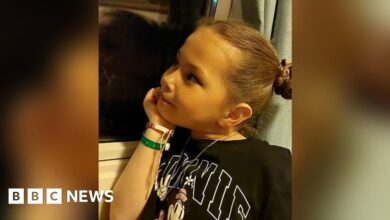‘The entire social fabric’ is falling apart in Haiti as displacement continues
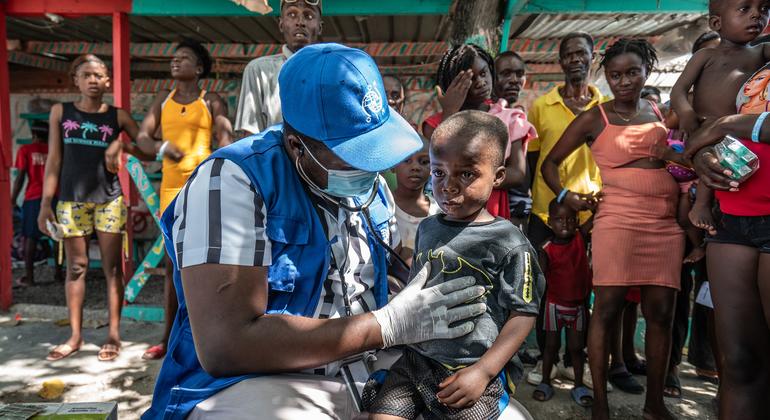
The number of people forced to flee their homes has skyrocketed from 362,000 in early March when violence erupted in the capital Port-au-Prince to more than 578,000 in June, a 60 percent increase in just three months.
So what happens in Haiti as people are displaced and how is the United Nations responding?
The first step of any crisis response is to assess the extent of displacement and respond to the urgent humanitarian needs of people forced to flee their homes, often for short periods of time and with few assets.
No help in the middle of a gunfight
OCHA coordinating the response mechanism with the Haitian government, local nongovernmental organizations (NGOs) and international partners, but this is not a simple task in Haiti, according to Mr. Sawadogo.
“The violence that displaces people is the same violence that creates challenges in response,” he said. United Nations News. “Cannot deliver aid in the middle of a gunfight.”
The United Nations International Organization for Migration (IOM) works with Haitian NGO partners who have local teams to reach out to people and learn more about their individual circumstances.

About 80 percent of displaced people are living with host families while the rest are sheltering in temporary locations.
Personal protection
People, especially women and children, are most vulnerable when their lives are disrupted by an event such as fleeing for their lives. They are at risk of violence, sexual assault, exploitation, abuse and family separation. There is also evidence of children being forced to work for gangs.
The United Nations works to ensure their protection by supporting the Government of Haiti to provide legal documentation and social protection for these people, helping them access services and be protected from exploitation and abuse.
IOM, the United Nations sexual and reproductive health agency, United Nations Population FundUnited Nations Children’s Fund (UNICEF) and Haitian NGOs such as Fondation Toya and Kay Fanm are among those providing psychosocial support to traumatized people, including children.
Preparing for the move
One of the key elements of any response to displacement is being prepared to respond at short notice in what is often an unstable and dangerous environment.
Having “financial resources, enough staff, access to places where people have to flee, and government support” is also important, according to Mr. Sawadogo.
The logistics of delivering relief aid play a vital role. In June, the World Food Programme (WFP)World food program) airlifted more than 55 tons of medicine and shelter materials for displaced people as well as to prepare supplies for the hurricane season.
The international NGO Médecins Sans Frontières (MSF), also known as Doctors Without Borders, also airlifted 80 tonnes of medicine to sustain its operations in the capital Port-au-Prince.
The support provided depends on the specific situation, but generally focuses on health, shelter, food, water and sanitation along with psychosocial support.
Tag Team Support
Since March, the United Nations has distributed more than 21 million liters of water to displaced people in Port-au-Prince, more than 60,000 people have been transferred from WFP’s hot meals program to a cash transfer initiative, and thousands of Haitians have received medical aid and psychosocial support.
IOM, UNICEF and local implementing partners provided emergency shelter materials and non-food essentials such as blankets, cooking utensils and hygiene kits. They also ensured access to clean water, sanitation facilities and promoted hygiene to prevent disease outbreaks.
Pan American Health Organization (PAHO)/World Health Organization (WHO) and other health agencies have set up temporary medical facilities, provided medical care and conducted vaccination campaigns.
Last month, UNICEF also stepped up its presence in Léogâne, west of Port-au-Prince, where some 33,000 people fled after a flare-up of gang violence in May. The agency reported that two-thirds of those displaced were women and children. The influx has put enormous pressure on local education, health and other essential services.
“We could do more if we had more resources,” said Mr. Sawadogo. “However, this year’s $674 million humanitarian appeal, seven months into the year, is less than 25 percent funded, which poses a challenge.”

The United Nations Mission in Haiti has provided first aid and disaster management training to the people of Port-au-Prince.
Unraveling social structure
Based on IOMNationwide, 80 percent of displaced people are living with host families while the rest are sheltering in temporary locations, many in gang-controlled or high-risk areas. In the south of the country, the agency estimates that 99 percent of displaced people are living with host families.
Many people are unable or unwilling to return home and may have to stay in temporary accommodation for long periods of time.
As a result, “the entire social fabric of families is being torn apart as family members are separated, jobs are lost, schools are closed and health services are collapsing,” said OCHA’s Mr. Sawadogo.
In these situations, the United Nations has focused on providing long-term support to ensure, for example, that children attend school. In some cases, livelihoods programmes are provided to help displaced people regain self-sufficiency. These programmes may include vocational training and income-generating activities as well as seeds, tools and training for farmers.

Thousands of Haitians have fled violence in gang-controlled areas, seeking safety and shelter across the country.
Back home
The ultimate goal is to facilitate the return of displaced people to their homes as long as it is safe and they are willing.
In cases where repatriation is not possible, the United Nations will assist those displaced to new settlements.
“Every crisis has its own particularities, its own trauma,” said Mr. Sawadogo. “Whatever the crisis, our goal is to provide aid and support to those in need as quickly as possible and help them get back to normal.”
Learn more about how the United Nations is helping This.

